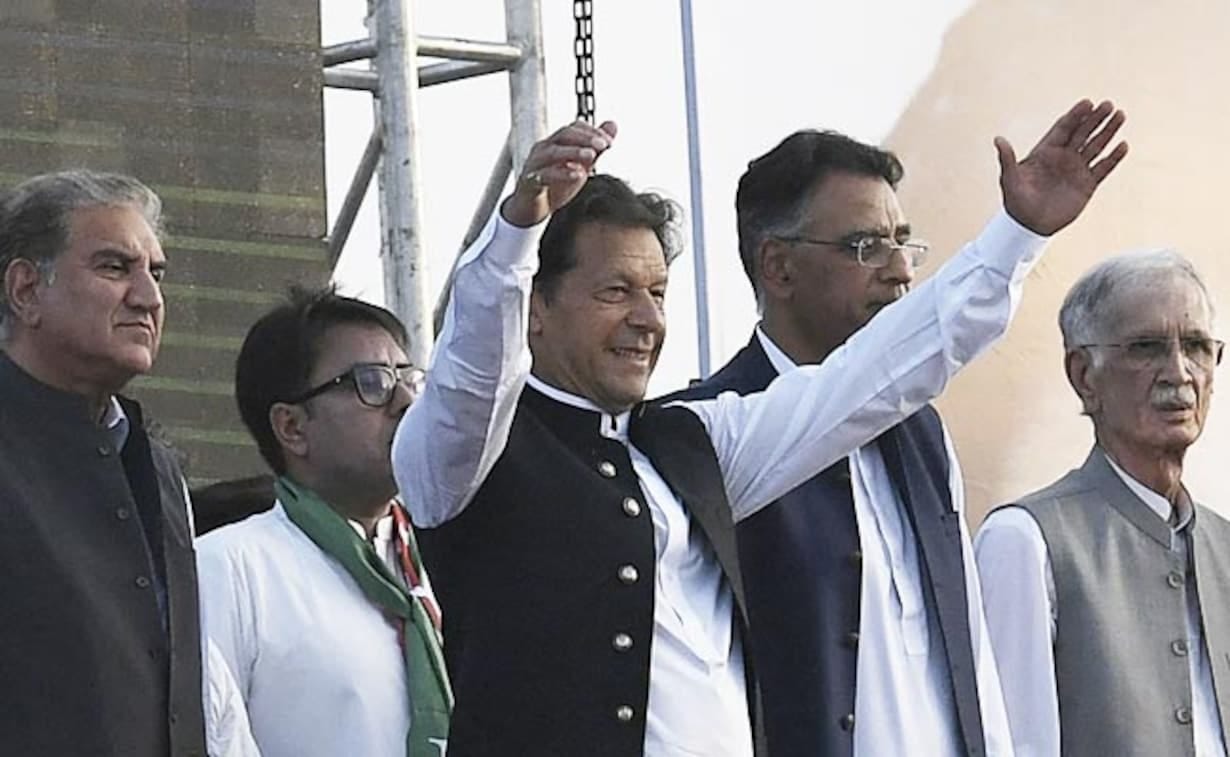By: Aftab Alexander Mughal
Pakistan is facing political turmoil in the wake of Prime Minister Imran Khan’s dissolution of the National Assembly to counter the no-confidence motion against him. On 3 April, the cabinet division issued a notification suspending Khan as premier. However, he will continue to function until a caretaker is installed.
As the assembly’s session started, it was clear that the opposition will win the vote of no confidence against the 69-year-old Khan, who has been faced with a wide range of problems including inflation, a flagging currency, and a government in disarray and has lost the confidence of the army, which de facto is the backbone of the country. He has sought to limit press freedom and public protest, spurring more unrest.
President Arif Alvi, a member of Khan’s party, dissolved the National Assembly.
Supreme Court Bar President Ahsan Bhoon declared the actions of the prime minister and the deputy speaker unconstitutional in attempting to stay in power and said, “They should be prosecuted for treason under Article 6 of the constitution.”
The opposition’s no-trust resolution was submitted to the parliament nearly a month ago, on March 8, but the speaker of the house used parliamentary tactics to delay the vote. The nation was expecting the vote on April 3.
Seeking to save Khan, who leads the Pakistan Tehreek-e-Insaf (PTI), from defeat, Deputy Speaker of the National Assembly Qasim Shah Suri, a PTI ally, dismissed the motion terming it a violation of Article 5 of the Constitution. Wajahat Msood, a senior journalist, said that was another black day in the history of Pakistan, with the government making a joke of the people of Pakistan.
Although many suspected that maybe the military establishment and particularly the feared Inter-Service Intelligence spy agency was behind Khan’s decisions, the opposite appears to be true. The military declared that it was not part of the events. While speaking to a private TV channel, Director Inter-Services Public Relations Major General Babar Iftikhar said, “The army has nothing to do with what happened in the National Assembly today.”
To counter the no-trust move, Khan used religion, ultra-nationalism, and delaying tactics in an attempt to forestall the national assembly’s action. He alleged the opposition was part of a foreign conspiracy against him and claimed that it was backed by the United States, which US officials denied. He told the nation in public rallies and TV addresses that America was against him because he had been raising the issue of Islamophobia at international levels, and because he recently visited Russia and in fact was there when Russian President Vladimir Putin ordered the invasion of Ukraine, which has been widely condemned.
In recent weeks, as he fought for his political life, Khan has repeatedly alleged that the US administration was behind a plot to remove him from power, citing a private diplomatic cable that suggested Washington would be happier with the new leader of Pakistan. However, the cable has not been made public, and a spokesman for the State Department has said there is “no truth” to the accusations.
The chief of staff of the army, General Qamar Jawed Bajwa, contradicted Khan, on April 2 telling the Security Dialogue forum in Islamabad that Pakistan and the US are close partners. H also leveled criticism of the Russian attack on Ukraine.
Since Khan came to power in August of 2018, he has used the state machinery to attempt to crush opposition political parties by jailing their top leadership on corruption charges, which have never stood up in the courts. He could not control the crisis of wheat, sugar, and petrol prices as global inflation took its toll. Gas and electricity problem was another issue which the nation faced along with massive national debt, which robbed the currency of its value.
Fed up with the two major political parties, Pakistan People’s Party (PPP) and Pakistan Muslim League-N (PML-N), the military establishment ensured Khan’s victory in 2018 elections and installed a hybrid government. Khan, however, was never a popular leader despite his status as the country’s greatest sportsman ever. Despite the establishment's full support, he could not get a majority in the parliament and formed a coalition government.
Due to his poor performance, however, he disappointed the military leadership, attempting to install his own leader of the ISI. The military gradually started distancing itself from him, providing the opportunity to the opposition to oust him from power through constitutional means. Just days ago, his coalition partners left him, so he clearly lost the majority in the assembly.
Presenting himself as a brave patriotic leader, he constantly promoted anti-American sentiment. Hence, during the PTI tenure, ties with Washington were at the lowest level. Showing his displeasure, President Joe Biden did not make the customary phone call that incoming presidents usually extend to Pakistani leaders. Presenting himself as a devout Muslim and leader of the Muslim world, he praised the Taliban and their takeover of Afghanistan and declared Osama bin Laden a martyr. He introduced many Islamic measures to make Pakistan a more conservative religious state. Due to emerging extremism, throughout his tenure, non-Muslim minorities constantly felt increasingly unsafe in their own homeland.
Aftab Alexander Mughal, a Pakistani journalist now based in England, is the editor of Minority Concern Pakistan, and a former Executive Secretary of the Justice and Peace Commission of Pakistan. He can be reached via: aftabmughal47@hotmail.com



